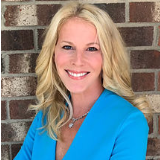Show Notes
In this episode, Charryse Johnson the founder of Jade Integrative Counseling and Wellness, sits down with us to discuss Seasonal Affective Disorder and the Holiday Blues. We discuss the causes, symptoms as well as practical solutions to help deal with both of these issues. We also touch base on the stigmas surrounding mental health and what is necessary to continue to break them down.
For more information about Charryse, visit her Wellistic profile or her website.
Transcription
Charryse Johnson: [00:00:00] Hi, thank you. Glad to be here.
Eddie Kane: [00:00:09] Today we’re going to be talking about seasonal affective disorder and the holiday blues and I’m sure that’s something that you have quite a bit of experience with.
Charryse Johnson: [00:00:18] and a huge topic this time of year.
Eddie Kane: [00:00:21] Yeah, definitely. So just to start things off, I know people aren’t outside as much as they are typically in the summer time and I would just like to clarify what is seasonal affective disorder or SAD as we may refer to it, specifically during this time of year. It’s problematic for so many, so what exactly is SAD?
Charryse Johnson: [00:00:41] Yeah, so seasonal affective disorder or SAD as you mentioned, is a clinical mood disorder. So it’s a type of depression and it definitely comes and goes with the season. So traditionally we find that it begins in late fall or early winter often around the time that the time changes, season changes, we’re getting shorter days, less light and for most who have it, it’ll go all the way into early spring until we hit that other time change and kind of get back to those longer days. So it can be a really long stretch.
Eddie Kane: [00:01:18] Wow, so it’s less sunlight?
Charryse Johnson: [00:01:21] Yeah, it can be a combination of different things. So with the sunlight being less some people are definitely more affected by having less kind of vitamin D which we get from those sun rays as well as there’s a lot of barometric changes. If you’ve ever come across anyone even in your own conversation or find even for yourself that you notice mood is lower when it’s darker or when its rainy, some people are extremely sensitive to that time. So it’s often cyclical, you know, and the challenge of it is there are things that you can do to make it better but there is nothing that you can necessarily do to prevent it if it’s a way that your body simply responds to the environment, other than making sure that you’re not in a place like a Seattle or an Alaska, where there is Extreme seasons of dark and that affects you and knowing that wouldn’t be a place you’d want to stay.
Eddie Kane: [00:02:20] So it sounds like it’s just more of an awareness and being able to deal with it that way since you can’t necessarily avoid it, but just being aware and trying to minimize the potential of having those effects from it. Is that correct?
Charryse Johnson: [00:02:38] That’s absolutely right. Awareness is key. Most people who struggle, the struggle is intensified when they either are kind of in denial of it or they’re not aware of it. And so they’re not being proactive in doing all of the different things that they can to help moderate the time, but the people who’ve learned that about themselves over time and kind of can prepare for it, tend to manage and get through that season in a much healthier way than those who really are just kind of not sure what’s happening and they’re not treating it in the best way possible.
Eddie Kane: [00:03:14] Perfect, and another term that we had spoke about briefly in the introduction is holiday blues. So what exactly is holiday blues, can you clarify that for our listeners?
Charryse Johnson: [00:03:29] Sure. So holiday blues is a little different. A holiday blues may have depression but it could also have anxiety and it’s usually temporary and traditionally situational. For example, someone that has lost a loved one close to the holidays may find that for subsequent holidays, they have a little sadness because of feeling the loss of you know, this parent or the grandparent or friend is no longer there in that time. Or let’s say a family has recently gone through divorce or even moved and so now holidays look very different than they’ve looked in a long time. So the memories and the emotions that are attached to the season, which is quote unquote supposed to be this happy and joyous atmosphere, can actually be pretty painful because people are still grieving and those special moments bring up that grief, but then once you get past those holidays that traditionally lifts.
Eddie Kane: [00:04:29] And for folks that maybe haven’t had a loss in their life or something traumatic in that context. Just the stress from the holidays, can that also affect someone’s mood and would it be considered like holiday blues, say if I had to purchase gifts for 10 different people in my family would that also fall under holiday blues?
Charryse Johnson: [00:04:48] You know, I think it depends on the person. Blues tends to be focused on a downward shift. So if the stress is to the point that it is creating some sadness then yes, if it’s stress, you’re amped up and stress you know, that can be in a different category, it’s possible. So really intensity of it and frequency of it has a lot to do with whether or not it’s considered in holiday blues, but we absolutely see so many people and so many people that I work with who talk about, you know, this is supposed to be a great time of year and I’m supposed to be enjoying all of these things but behind all of this I’m sad. I’m exhausted, and the time goes by and it doesn’t feel as great as it used to, so definitely possible.
Eddie Kane: [00:05:35] That’s deep. That could go on a deeper level with just society and how we place value on certain things that maybe society shouldn’t. Are there any links between the two– SAD and the holiday blues?
Chayryse Johnson: [00:05:48] So not necessarily links, but what we do find is the symptoms can be very similar. So I feel there are a lot of people who have a difficult time differentiating. For example, there are some people who may say, oh, I just get the holiday blues around this time of year and don’t really recognize ‘its a little bit more than just this time of year.’ You know, we see this from October to February or March depending upon where you are. So again, the most difficult thing that we see is people have a difficult time noticing and acknowledging the difference between the two and then if we take the example that you gave is someone is super busy and stressed and really kind of being over productive, they’re also less likely to recognize and acknowledge that they’re not okay.
Eddie Kane: [00:06:36] In these conversations that we’re having here today, I think it’s important to have. So many people are affected, whether it’s short-term with holiday blues, and it’s society or pressure they’re putting on themselves or if it’s seasonal affective disorder where it’s really out of their control and it’s just the environment and the effects that they’re feeling from that. To broaden this conversation, where do you feel our society currently stands on diminishing stigmas around Mental Health?
Charryse Johnson: [00:07:04] Yeah, you know I think our society is in two different places. So in many ways, I really feel we’ve made huge improvements. We’ve had to make those improvements because there are so many things happening on the forefront of society that has made us all face ‘okay mental health is very much a real issue and we can’t ignore it and we have to look out for it more’. So with things like this podcast and what you know, Wellistic does and social media and the news, we’re starting to see the conversation happen more which is so helpful because then you have people who may be suffering in silence or wouldn’t say anything about it. They’re still able to get information. Where we still might be struggling as a society is so many people still don’t have access.
One of the things that we can overlook depending upon our own life circumstances, is that having access to Mental Health Care is actually a privilege, you know, there are a lot of people who either are uninsured or even if they have an insured plan based on what that looks like, they still may not be able to afford mental care or medication or even a gym membership or whatever they need to find support. So that’s the place that we’re still struggling is just with the access, but exposure, having the conversation, is getting so much better.
Eddie Kane: [00:08:34] It is a privilege to have access to healthcare and for mental health purposes. I was having a conversation with somebody the other day about homelessness and they were kind of questioning, ‘well how can people be homeless?’ I brought up the point that it’s not just there isn’t maybe not a job for a person or they don’t have a trade or whatever the case may be, but it’s actually more than that. It’s that they may have a mental health disability, or they may need some help to be able to maintain a job.
Charryse Johnson: [00:09:07] Yeah, and and our picture of homelessness just for a moment is very narrow, you know, so most people have that concept of someone standing on the side of the road with a sign but recent data actually says that about forty percent of the homeless population are lower middle class families who are just living paycheck to paycheck and lost a loved one. You know, let’s say it’s a married family with children, and the husband passed away and the mother didn’t have the income to be able to sustain their their way of living. So there are a lot of middle income families who are either one step away from homelessness or like you’re saying someone got sick and they weren’t able to recover from that financially and that changed the entire course of their life.
Eddie Kane: [00:09:57] Around this time of year it’s important that we all give the best we can to whatever charity or donate items that we have. What can people do to help to continue to remove mental health stigmas?
Charryse Johnson: [00:10:11] Yeah, you know, I think the most important place for us to start is with ourselves. A lot of times the stigma is something that we feel ourselves and so taking the time to go, ‘Hey, what are my own beliefs here? am I willing to acknowledge when I’m not okay with compassion?’ because kind of in western civilization and you know, I’d say it’s everywhere, but specifically just within our kind of American culture, we pride ourselves in always being okay and always seeming like everything is together and so sometimes that encourages us to hide things that we need to to talk about and so acknowledging our own struggles without guilt and being able to seek support is the first step because if we can do that for ourselves, then it’s going to make us more open and more aware of what other people have gone through.
You know, if anyone has gone through the holiday blues or has seasonal affect, they all have more compassion even towards other people. They’ll pay more attention when you’re at a holiday party and you notice someone who is less talkative and a little bit more distant. The assumption may not be that, they’re just not interested. You may go to them and ask a different question and being able to really see each other and notice those small changes is also a really great way to remove that stigma and let people know hey, if you ever need to talk, I’m here.
Eddie Kane: [00:11:52] So what should someone do if they’re experiencing some of the symptoms from seasonal affective disorder? And could you list a few of those symptoms for us as well?
Charryse Johnson: [00:12:02] Yeah, so a few of the symptoms from seasonal affective disorder is going to be depression. What we call anhedonia which is essentially decreased interest in things that traditionally bring you pleasure. So isolating, pulling back from people. Sometimes you’ll also see increased fatigue or almost feeling like the your limbs are heavy and this increased need for sleep. Even though you know, okay, if I look at it in terms of hours-wise I’ve gotten plenty of sleep. Some people will also see appetite changes that can be increased appetite someone feels like they’re eating for comfort or even decreased appetite due to sadness, you know, those are some of the common ones.
In terms of what they can do, there are lots of great options both kind of holistically and clinically, so it is very helpful to speak with either a counselor or therapist or even your primary care physician, especially if it’s something that you’ve noticed each year it’s continuing to recur. There are some people who benefit from having a low-level antidepressant around this time of year or if they’re already on one, sometimes giving them a slight increase in dosage during this year will help them kind of level off on baseline and if they’re people who are not into psychotropics and medication, there are different vitamins and nutrients that they can also take to help that. I definitely would encourage if that’s a route that someone wants to go, instead of going into your local vitamin shop or GNC and purchasing several things even consider doing a nutrient and vitamin check, which is also another active step that you can take. A lot of times what we see in people with seasonal affect is during this time of year, they may also have extremely low vitamin D. And so whether over-the-counter or prescribed at a higher dose that can be a really helpful addition to their daily regimen.
And then two other really important components are exercise. Because the weather changes, it’s a little bit colder, people have the tendency to move less, but that movement gives us great endorphins and actually helps to lift mood. So trying to find some exercises that you still enjoy and being able to do an inside. And then light therapy. Light therapy can be done a couple of different ways. There are specific light bulbs that can be purchased and placed in a kind of reset into your home area or there is a specific Light lamp that is made for individuals who struggle with seasonal affect. And basically what they would do is at the beginning of the morning, they would spend 30 minutes to 45 minutes at an angle in front of that light, which is going to give them some of that natural endorphins that they need and dopamine to help them move or even the use of a small Himalayan pink Himalayan salt lamp can be extremely helpful during these times.
Eddie Kane: [00:15:23] That’s some great advice and so few years back, I wasn’t quite sure why I was feeling down. I didn’t really have anything to point it to nothing was going wrong. I was working out regularly. I can’t remember the exact reason why I picked up specifically vitamin D. I hadn’t read anything online, but I just started taking it and about two weeks after I had been taking the vitamin D, I was just like in a better mood. I was back to being more outgoing and I kind of sat down and thought to myself what have I changed? I’m still working out. I’m still eating the same foods and the only difference was the vitamin D. And it was so profound. I can’t even explain it.
Charryse Johnson: [00:16:04] Yeah, it’s hard to explain until you’ve experienced it and then it’s kind of mind-blowing, you know, traditionally, we only check our vitamins and nutrients once a year at our annual physical. I often encourage the people that I work with to get it checked twice a year. So in the fall, get it re-checked again. It’s especially for the people that I work with that are highly active because you’re actually going to use up those nutrients and vitamins faster than the average person due to the amount of exertion. So it’s phenomenal information to be able to have, and even there are certain foods, you know, some people might need more Omega-3s which just means add some more fish, you know, or hemp hearts to your diet and all of that plays part.
Eddie Kane: [00:16:47] Definitely. And to touch base on the lighting that you had mentioned, tanning beds. Are they or are they not included in the lighting that will help with seasonal affective disorder?
Charryse Johnson: [00:17:00] It actually depends on the tanning bed. So there are some locations that have started to take note of how all of this plays in together and it really depends on the bulbs that they use. So again, if a person feels like this is something that they know that they have and they enjoy tanning in moderation. I would definitely encourage them just to ask questions to the place that they go but a lot of places are beginning to kind of change things out and even marketing themselves in a way as this being something that’s helpful. So it’s definitely not a bad thing to do. It’s just knowing whether that specific tanning bed actually has enough light to emit to do what’s going to help your body or whether you’re just getting a tan. And there’s nothing really happening otherwise.
Eddie Kane: [00:17:47] Maybe a placeabo effect in that case.
Charryse Johnson: [00:17:49] Yeah.
Eddie Kane: [00:17:50] Which could still be beneficial, some would argue.
Charryse Johnson: [00:17:51] It can, well won’t hurt you for sure.
Eddie Kane: [00:17:55] What are some practical steps people can take this time of year to avoid holiday blues since we’ve talked about SAD, let’s move onto the holiday blues and just talk about some of the practical steps. Like I said, people can take away from this to avoid.
Charryse Johnson: [00:18:09] Absolutely, so I would say one balance your schedule. It’s so easy to get over scheduled. During this time of year, more people are having parties and events, and being able to give yourself the permission to say no or if you attend something and you’re still noticing ‘I’m here, but this is really difficult’ setting some kind of boundary and saying well I’ll attend, but only for a small period of time.
Two it’s important to be open with other people and let them know what’s going on for you. So it’s especially for people who are really struggling with the loss of a loved one or their family unit has changed. They’ve moved recently in a new location really just sharing with other people ‘yea this is a really hard time for me. I’m used to being with my family and they’re not there.’ And then creating new traditions can actually be very helpful. There’s a lot of families I have worked with and they notice much like we were saying earlier, that the holiday got away from itself. You know it moved from this ‘we enjoy being with each other and spending time and making memories’ to this mad dash of pressure and gift-giving that took away from the time. So a lot of families are scaling back.
For example, if everyone in the family used to go out and get gifts and you had to spend X number of dollars on everyone. A lot of people are moving towards putting their money together and adopting another family for Christmas or serving and volunteering together at a soup kitchen on Thanksgiving before they eat a meal together and that balance of remembering ‘hey, there are other people out there that don’t have what we have’ is a great way to create some new traditions and new meaning around this time of year.
Eddie Kane: [00:20:05] Yeah. Sounds like you can really bring light to some of the things that folks should be grateful for and make them stop and realize that.
Charryse Johnson: [00:20:13] Yes.
Eddie Kane: [00:20:14] So to move away from the topics. We’ve been discussing we’re going to move into our final segments here. What is something that you have recently learned about and where did you learn about it from?
Charryse Johnson: [00:20:28] Yeah, so something that I have been recently studying and searching is the connection between food and emotions. So work with a lot of people around that but in a completely different way, looking at nutrient deficiencies and how certain nutrient deficiencies that we’re unaware of even though I know we talked about it a little bit, based on genetics. Based on culture based on male, female, often can play into our level of anxiety, how well we’re sleeping, irritability. And I get a lot of I have access to Medical journals.
So I know that’s not something that all the listeners will, you know be able to get access to but the World Health Organization that we also call WHO has some really great information out there and just really helping people also see the benefit of eating according to the season and how that plays into overall well-being. Because more and more what I’m seeing is people want to live well and they want things to be individualized to their own life and their own approach, but that takes knowing yourself or even knowing are you Italian are you Latinx, and how does that even play into the foods that your body processes well and how that makes you feel.
Eddie Kane: [00:21:54] That is really interesting and the nutrition aspect I think it’s overlooked a lot of times. People may be looking for a magic pill or something to take a lot of the times the magic pill if you will is within their diet. It’s good you have a well-rounded look at situations that people deal with outside of prescribing something really working with them to find ‘What is the best option for them?’ Whether it is medicine or it is their diet and exercise and just starting at a baseline and working with them from that point. It sounds like you have a really good approach to how you work with people.
Charryse Johnson: [00:22:29] Yeah. Well, I think if you think about it, you know, that’s so much of who we are as people, right? the basics are eating sleeping, you know movement and water intake and honestly about seventy percent of what we struggle with could be significantly improved by addressing those areas adequately and then you can add on as necessary. And sometimes that’s so simple, that people make it complicated and think that there’s something else that they should be doing and want to be doing. But those are what I like to call the vital habits that give us really great well-being and then you know after that if you’re still not feeling as well as you like, what are your finances like? what’s your job stress like? all of that plays a part before we get to that last step of meeting medicinal support.
Eddie Kane: [00:23:20] It’s a lot to take in and to consume for sure. And I think it’s important that if people are having issues, they reach out for help. My last question for you, a little personal but, how do you deal with stress?
Charryse Johnson: [00:23:33] Oh, let me count the ways. Yeah, you know, honestly a lot of how I deal with stress actually depends on what I’m stressed about. So I try to notice where am I feeling stress? And how can I be what I like to call proactive instead of being reactive. So to the best of my ability, I attempt to set up my schedule and routine in a way that I know I have time and space to kind of ebb and flow with everything. I am a yoga teacher.
So I really love that time of slowing myself down and then I love exercise in general and that’s such a good process for my own mood and then really giving myself permission to rest and always working through not feeling guilty saying no. And I tend to be really honest with people if I’m saying no to something, you know, there’s a large party when people meet me just point of disclosure, it’s funny a lot of times they think that I’m this major extrovert and I’m actually not. I do much better in small groups. And so being in large situations for a long time for example overwhelms me and I know that about myself so if someone invites me into a situation like that and I know my tank is running kind of low, I give myself permission to say, you know what? I’m not going to be there, but I would love to catch up with you and a few other people, you know next week or at another time and so part of how I believe a lot of people including myself get so overwhelmed with stress is we want to be everything to everybody instead of acknowledging that we just can’t be that all the time and it’s okay and I feel it.
You know people in my life their response around it has always been so kind and so wonderful, and I’ve never regretted giving myself that time to sit back and do something different. I also love spending time with my family and friends. That’s a good source of comfort and enjoyment for me. So in terms of balancing responsibility with having a life, I also try to make sure I spend time with people that I love because those situations aren’t filled with pressure and I can just be whatever I need to be in that moment without being worried about somebody wondering ‘is she okay?’ and ‘she seems different.’
Eddie Kane: [00:26:07] You understand clearly how important it is, the famous quote: “You can’t pour from an empty cup.” It sounds like you really do take care of yourself and give what you can give and set boundaries so that you’re taking care of yourself. So you can give more and be effective when you do give.
Charryse Johnson: [00:26:24] Right. That’s definitely the goal. We have to fill up and then give out and fill up and then give out and just also know when we’re in a situation where it takes too much out of us. And that’s not the best situation for us and be willing to make a change.
Eddie Kane: [00:26:40] Incredible advice. This has been an amazing podcast. I appreciate you once again taking the time out here this morning to sit down with me Charryse Johnson. Once again, I’d like to say, thank you.
Charryse Johnson: [00:26:52] Yes, thank you so much. I appreciate you guys creating this platform. I hope the listeners find it very helpful. And of course if anyone has questions, I’m more than happy to be a resource and just appreciate you having me on.
Episode Sponsor
At Carolina Barre, every class is taught with integrity and the ability to modify at any time to meet the needs of the class. Each guest is made to feel welcomed and a part of the community. Above all the high-quality fitness classes focus on position, alignment and movement in a welcoming, loving environment where guests are more than just a name on a roster. Check out Carolina Barre located at 2603 Glenwood Ave in Raleigh or at 4201-A Park Rd. Charlotte, North Carolina.







